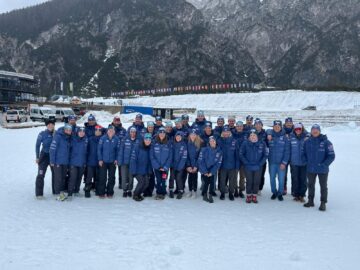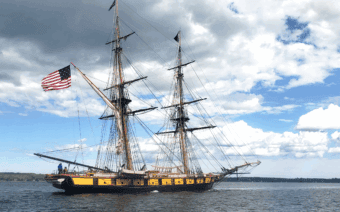
September 23, 2022
NORTHEAST WISCONSIN – As millions throughout the country were sent home for an unforeseeable future because of the COVID-19 pandemic, finding ways to fill their new-found “free time” had many looking to game stores.
“People discovered that the weight of boredom was far greater than they expected,” Jennifer Maglio, general manager of MOJO, a retro electronics store with five locations in Northeast Wisconsin, said.
Maglio said over the course of the pandemic, those in the industry watched people devote more time on hobbies – which in turn, helped many game stores stay afloat.
“When COVID began, we shut the store down for six weeks, and then did curbside for another four weeks,” Gregg Johnson, owner of Game Trade in De Pere, said. “Even with that closure and then the limited opening, we still managed to beat the previous year in sales.”
Johnson said many factors came into play, but possibly the most important was games were a way to “keep the family sane” while stuck at home.
“With a lot of places closed, many people stayed inside with a simple, fun, relaxing hobby,” he said. “This led to us seeing a lot of new customers, but also seeing more traffic from our regular customers.”
Karissa Fendt, owner of Boardlandia, a board game store located in Appleton, said though the store was forced to close its physical doors, sales flourished during the pandemic.
?

Owner Karissa Fendt said Boardlandia took a more cautious approach than most in the industry when it came to reopening game room events. Submitted Photo
“Our online store kept us plenty busy, as we steadily shipped all over the country,” she said. “We saw a significant increase in games of all types, not just beginner games. We can only assume people were forced to find something to do at home, and thankfully, many turned to board games. There was also a sudden surge in demand for puzzles. We quickly sold out and could not get restocks for months.”
Maglio said when MOJO reopened its downs, the next few months were busier than the Christmas season.
“Our constant problem was keeping enough merchandise on the shelves,” she said. “These customers grabbed whatever game systems they could get their hands on telling the same stories over and over that they never wanted to be stuck at home without something to do ever again.”
Johnson said Game Trade saw family-friendly consoles, such as the Wii, along with retro systems like the NES, SNES and N64 begin to sell out.
“When dealing with an all-used inventory like we do, there is only a finite amount of product, and when everyone was buying them, we started selling out fast,” he said. “This, along with general inflation, caused the prices of a lot of collectible video games to go high and become even more desirable.”
Johnson said the increase in the value of rare games didn’t necessarily mean more profit for the store per sey, but the excitement level around buying video games went up, therefore leading to more business that way.
“As far as the future goes, it looks bright,” he said. “Prices are starting to come down on more rare and collectible items, which is actually a good thing for us. When those games become too expensive and the average consumer gets priced out of the market, we see less business. I always say I would rather sell 100 $1 games than 1 $100 game. Our business is interesting in that way. With a possible incoming recession – because we do buy our inventory from our customers – as people need extra money, they will sell us more of their games. And as more games get sold, the price deflates.”
Fendt said one of the big changes for many game stores during the pandemic was to adapt to selling online, if they were not doing so already.
“With the surge in big box stores doing car-side pickups, we also (saw) many games stores offering the same,” she said.
Pat Fuge, head gnome (owner) of Gnome Games, said the stores that made it through the pandemic are those that were able to adapt and meet customer needs in a different way.
“The way that we’ve been able to thrive is by listening to our customers, anticipating what their needs are and their desires are and then working hard to secure the supply chain – that’s our biggest challenge right now. It’s getting the product.”
Johnson said the increase in business contributed to some staff burnout.
“Trying to offer high levels of customer service was a challenge, and as employees, we all felt burnt out,” he said. “But we have been focusing on them and making sure we are still having fun, while keeping the business strong.”
?

Gregg Johnson said Game Trade saw retro systems, like the NES, SNES and N64, begin to sell out during the COVID-19 pandemic as interest boomed. Submitted Photo
COVID also pressed pause on in-person events and conventions.
“For example, our Pokémon League – the manufacturers took a responsible stance and said, ‘no Pokémon is allowed’ – we would have done that anyways,” Fuge said.
Coming out the other side
Maglio said returning to some sort of normalcy required both planning and patience, as stores found themselves needing to balance having the safeguards in place to let customers know they were taking safety seriously, while not creating an environment where the customers found those safeguards overwhelming or frustrating.
“Setting up options for no contact pickup, while also letting others know they were welcome physically inside the store,” she said.
Fendt said Boardlandia took a more cautious approach than most in the industry when it came to reopening game room events.
“We chose to wait quite some time longer to hold events for a few reasons,” she said. “First, we decided to take the quarantine time to redo our game space. Second, we weren’t comfortable hosting events with a bunch of people until things calmed down.”
Fendt said now that things are settling into the “new normal,” the store is looking forward to hosting more events again.
“The pandemic won’t change the way we will run events,” she said. “What it has done is brought more people into the hobby, thus increasing our attendance.”
Fuge echoed Fendt’s observation, noting the gaming environment is different than it was pre-COVID.
“There’s a lot more family unit, social gaming being played,” he said. “The vast majority of its lighter strategy versus the heavier strategy. The players who are playing, for the most part, are not playing competitively – they’re playing socially.”
Maglio said as people’s lives slowly return to normal, many are continuing to carve out more hobby time for themselves than before the pandemic.
“People are collecting and playing more video games than ever,” she said. “This effect was greatly amplified by the time we spent in lockdown.”
 Pondview Lavender Farm: A budding business
Pondview Lavender Farm: A budding business ‘I am incredibly grateful to be a small part of the team’
‘I am incredibly grateful to be a small part of the team’








